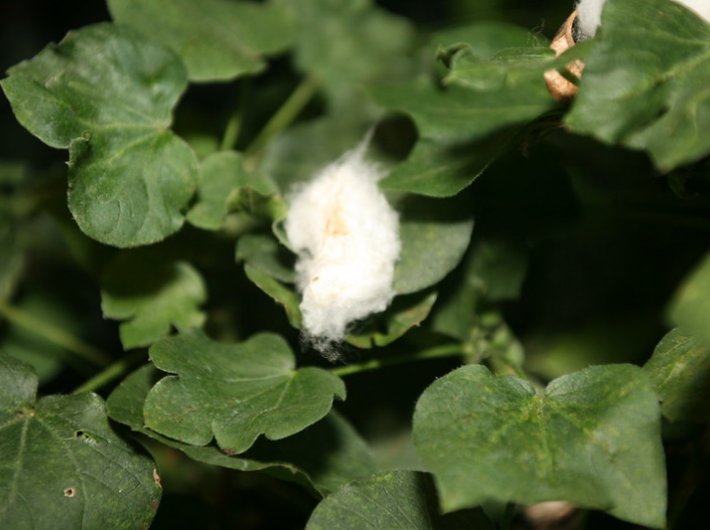World Food Prize Laureate tells webinar: New technology led to denial and non-implementation of real solutions for revival of cotton in India
Bt Cotton is the first and only GM (genetically modified) crop that has been approved in India. It is now cultivated for more than 20 years -- first illegally and later approved by the government. Indian cotton yields rank 36th in the world and been stagnant for the last 15 years. Insecticide usage has been consistently increasing post 2005 despite an increase in area under Bt Cotton. On ground, farmers are looking for other crops or non-Bt varieties of cotton to cultivate as an alternative to Bt Cotton.
Among the various genetically modified food crops in the pipeline of approval and experimentation in India, those waiting foremost for regulatory clearance for commercial cultivation are new Bt brinjal event (other than Mahyco’s Bt brinjal EE-1),Delhi University’s herbicide tolerant GM mustard, Monsanto’s herbicide tolerant and Bt GM maize.
An expert panel of scientists came together in a webinar recently to present evidence-based evaluation on18 years of approved Bt Cotton in India and how outdated and ill suited technology has failed to deliver on its promises.
In a scathing attack on policy makers, Dr Peter Kenmore, a former FAO Representative in India, said that cotton is an outdated pest control technology. “It follows the same path worn down by generations of insecticide molecules from arsenic to DDT to BHC to endosulfan to monocrotophos to carbaryl to imidacloprid. In-house research aims for each molecule to be packaged biochemically, legally, and commercially before it is released and promoted. Corporate and public policy actors then claim yield increases but deliver no more than temporary pest suppression, secondary pest release and pest resistance.”
Kenmore added that recurrent cycles of crises has sparked citizens’ public action and sprouted ecological field research by committed scientists. “When this research is taken on by farmers’ groups they create locally-adapted agro ecological strategies. Their agro ecology now gathers global support from citizens’ groups, governments and UN-FAO. Their robust local solutions in Indian cotton do not require any new molecules, including endo-toxins like in Bt Cotton.”
Dr Andrew Paul Gutierrez, senior emeritus professor in the College of Natural Resources at the University of California at Berkeley in USA, through his presentation explained the ecological reasons as to why hybrid Bt Cotton failed in India. He pointed out that India could have easily learnt from the mistakes that happened in California in the 1960s and 70s where the pest outbreak was mainly insecticide-induced.
“The long season Bt Cotton introduced in India was incorporated into hybrids that trapped farmers into biotech and insecticide treadmills. Its cultivation in rainfed areas is unique to India. It is a value capture mechanism that does not contribute to yield and is a major contributor to low yield stagnation and contributes to increasing production costs,” he explained.
Gutierrez asserted that economic distress has increased cotton farmer suicides and adoption of improved non-GM high-density short season fertile cotton varieties is a viable solution to the current GM hybrid system.
Dr Keshav Kranthi of International Cotton Advisory Committee (ICAC) through his data presentation explained, “A critical analysis of official statistics (eands.dacnet.nic.in & cotcorp.gov.in) shows that despite increase in area from 11.5% in 2005 and 37.8% in 2006 to a near saturation point after 2011, Bt hybrid technology has not been providing any tangible benefits in India in the past 15 years either in yield or insecticide usage.Cotton yields are the lowest in the world in Maharashtra despite being saturated with Bt-hybrids and highest usage of fertilizers and lesser than rainfed Africa wherein there is hardly any usage of technologies such as Bt or hybrids or fertilisers or pesticides or irrigation.
“Research also shows that the Bt-hybrid technology has failed the test of sustainability with resistance in pink bollworm to Bt-cotton, increasing sucking pest infestation, increasing trend in insecticide and fertiliser usage and increasing costs and negative net-returns in 2014 and 2015,” said Kranthi .
Dr Hans Herren, Laureate of the Right Livelihood Award and former co-chair of IAASTD (International Assessment of Agricultural Knowledge, Science & Technology for Development), said , “GMOs exemplify the case of a technology searching for an application. To modify the genome of plants and animals serves only the short-term drive for profit at the cost of farmers, consumers and food security in the medium and long term.”
He added that the technology is about treating symptoms rather than dealing with the problem's root causes, i.e., taking a systems approach to create resilient, productive and bio-diverse food systems in the widest sense and to provide sustainable and affordable solutions in its social, environmental and economic dimensions.
Strongly advocating agro ecology which includes regenerative, organic, biodynamic, perma culture, and natural farming practices for survival as members of the earth systems and to meet the SDGs , Herren pointed that failure of Bt cotton is not just a failure of a product or technology behind it. It is a classic representation of what unsound science of plant protection and faulty direction of agricultural development can lead to.
“Bt-hybrid technology in India represents an error-driven policy that has led to the denial and non-implementation of the real solutions for the revival of cotton in India which lie in HDSS (high density short season) planting of non-Bt/ GMO cotton in pure line varieties of our native desi species and American cotton species. We need to push aside the vested interests blocking the transformation with the baseless arguments of ‘the world needs more food’ and design and implement policies that are forward looking, deal with the climate crisis and help heal the COVID-19 pandemic aftermath. We have all the needed scientific and practical evidence that the agro ecological approaches to food and nutrition security work successfully” said Herren.
The international webinar was organised by Centre for Sustainable Agriculture and Jatan, in collaboration with Alliance for Sustainable & Holistic Agriculture (ASHA) and India For Safe Food.

